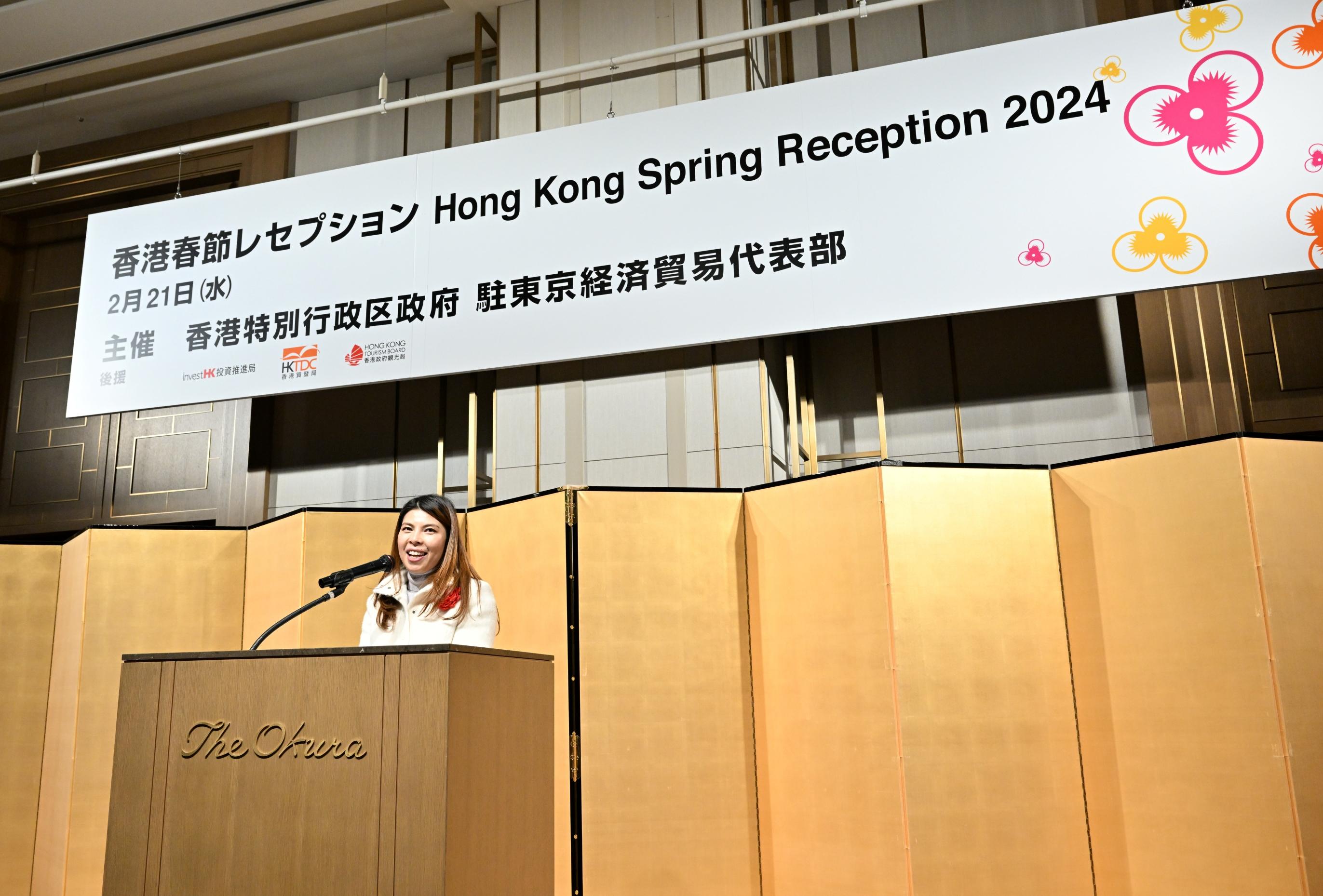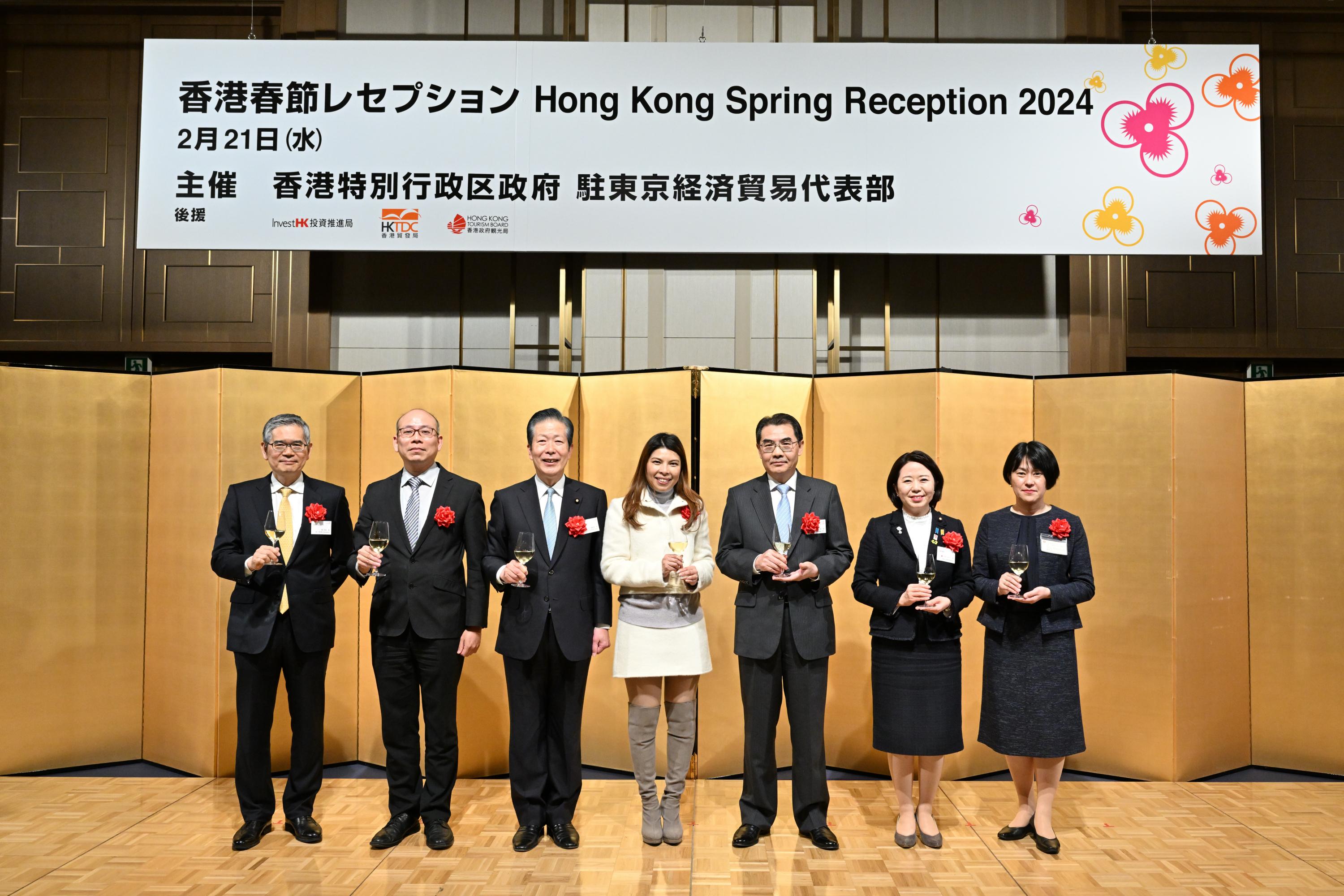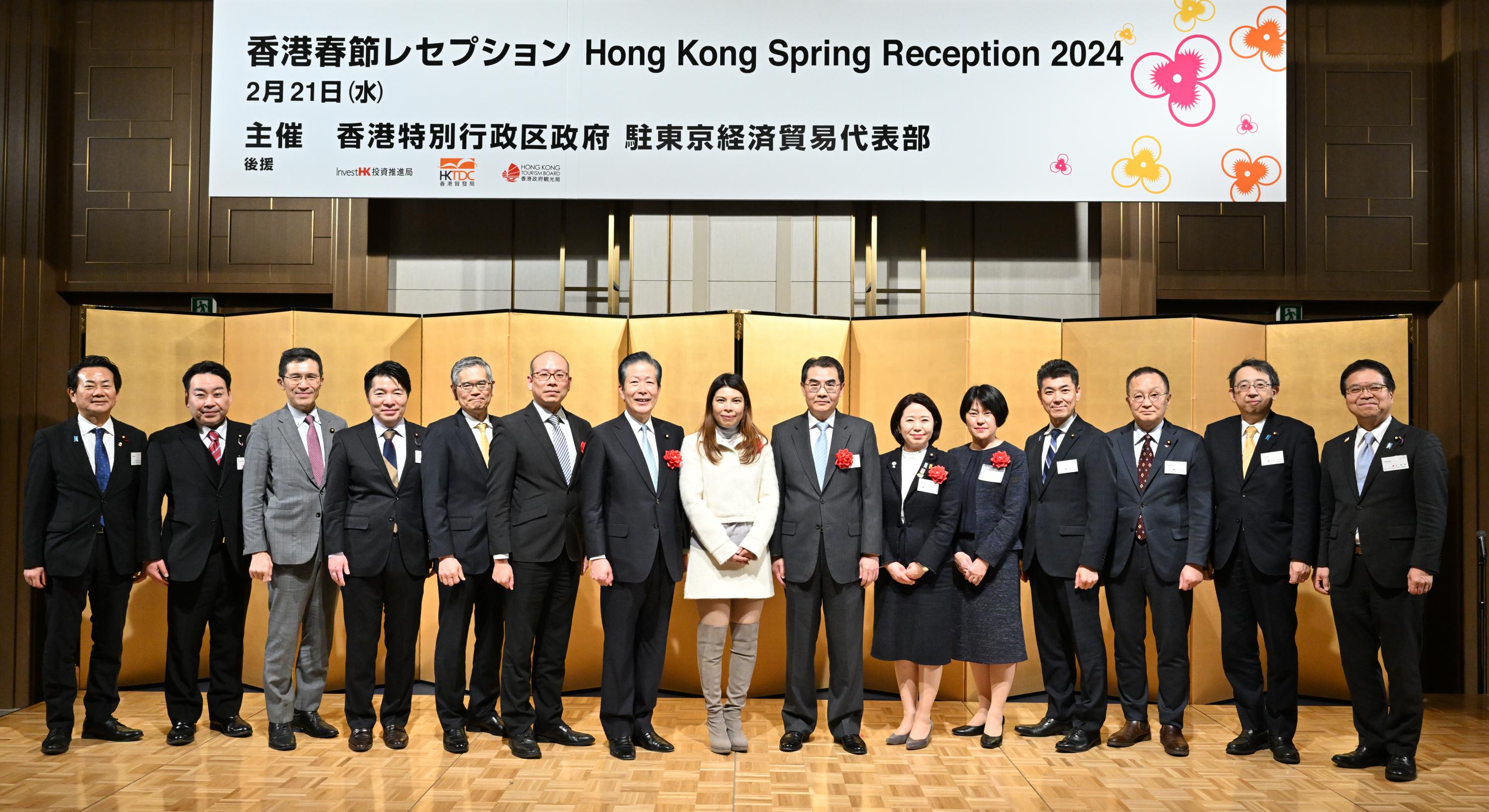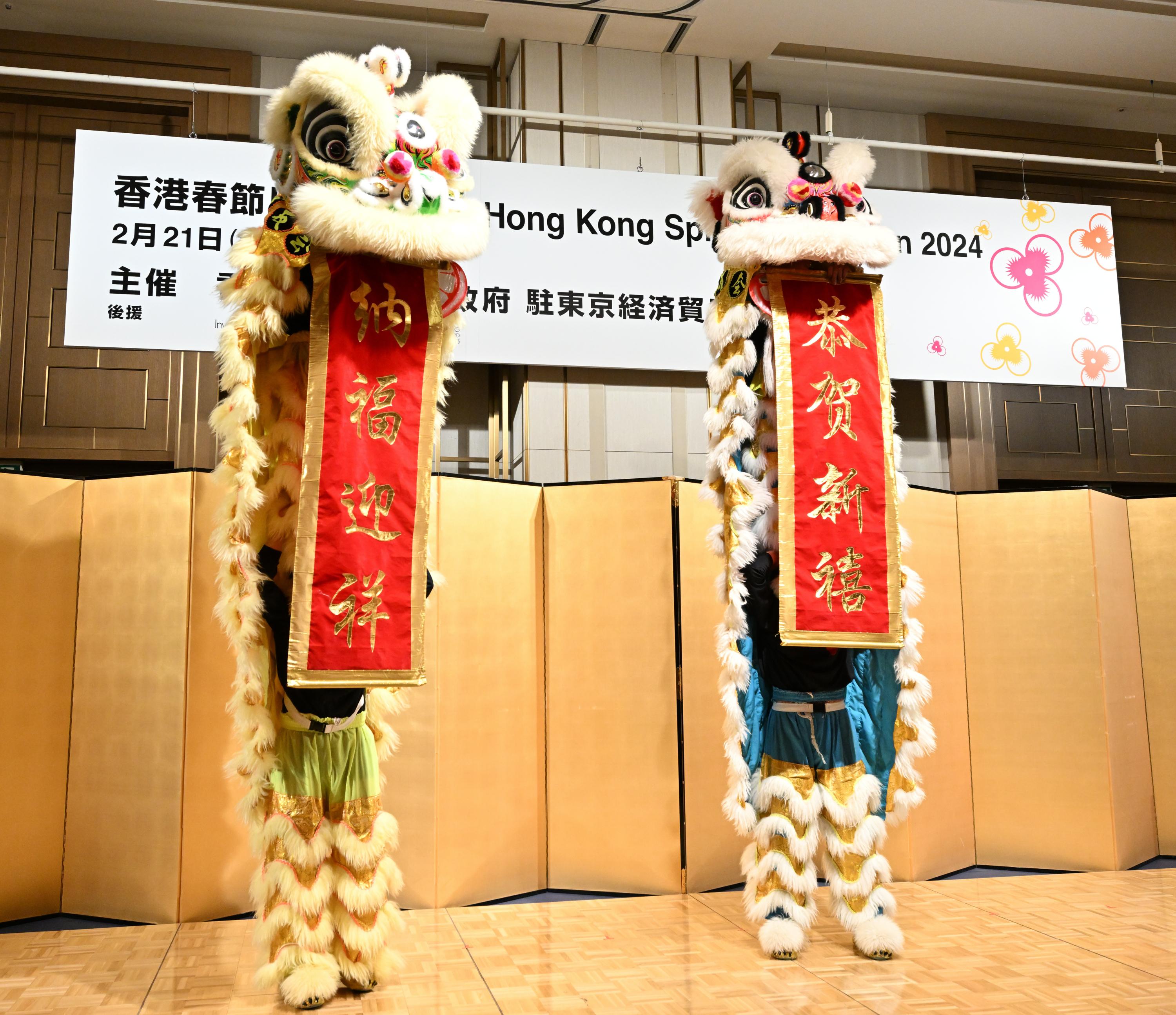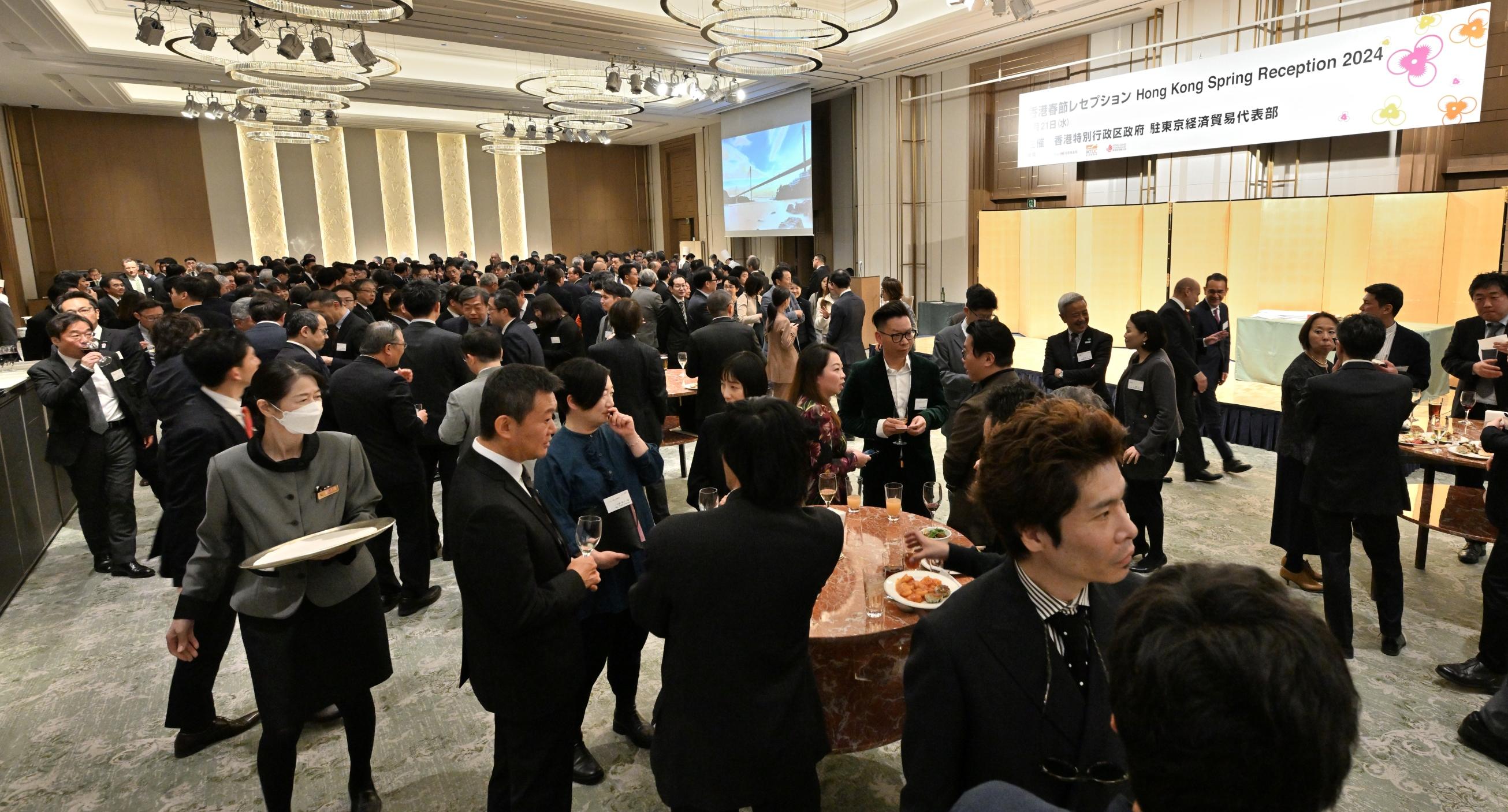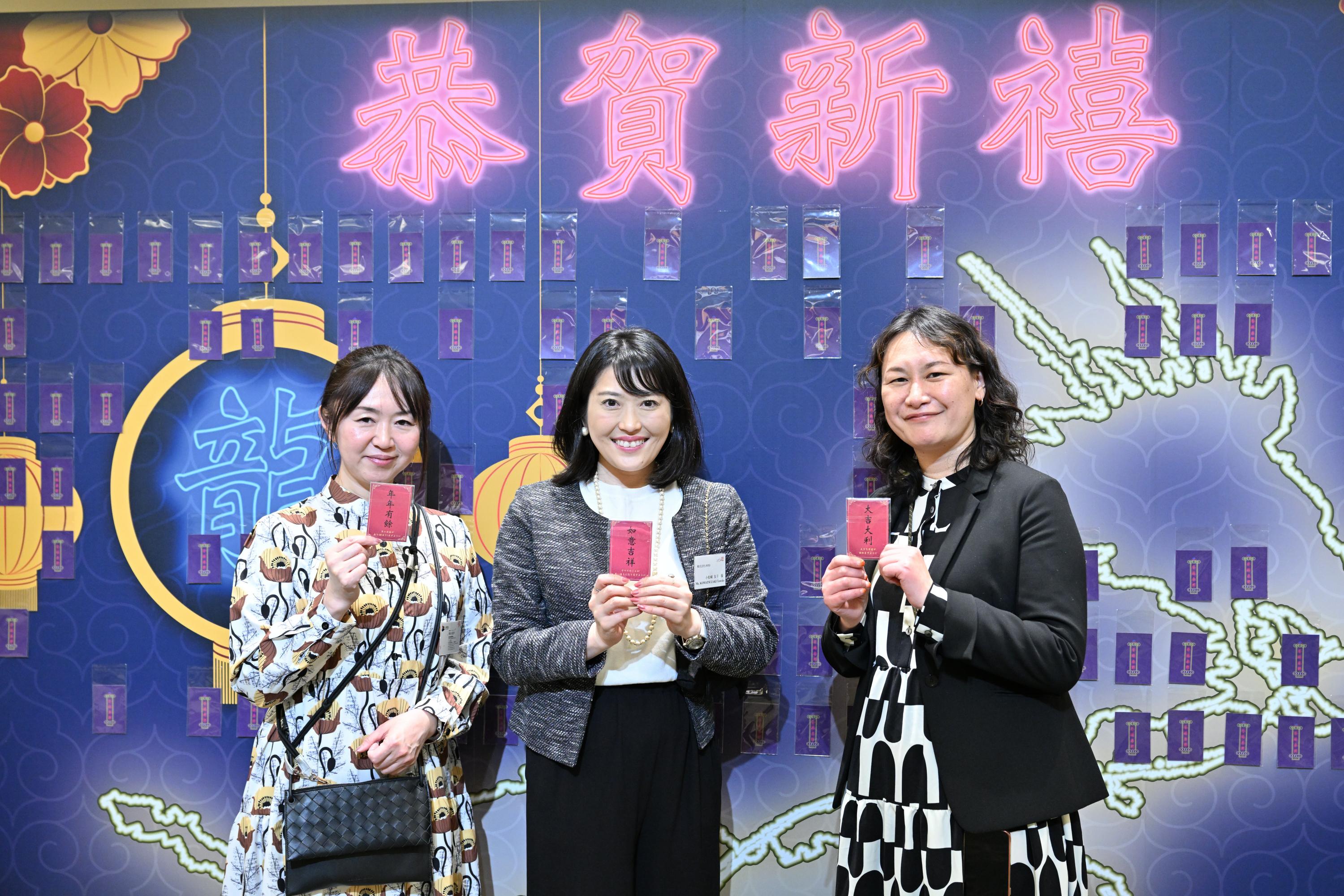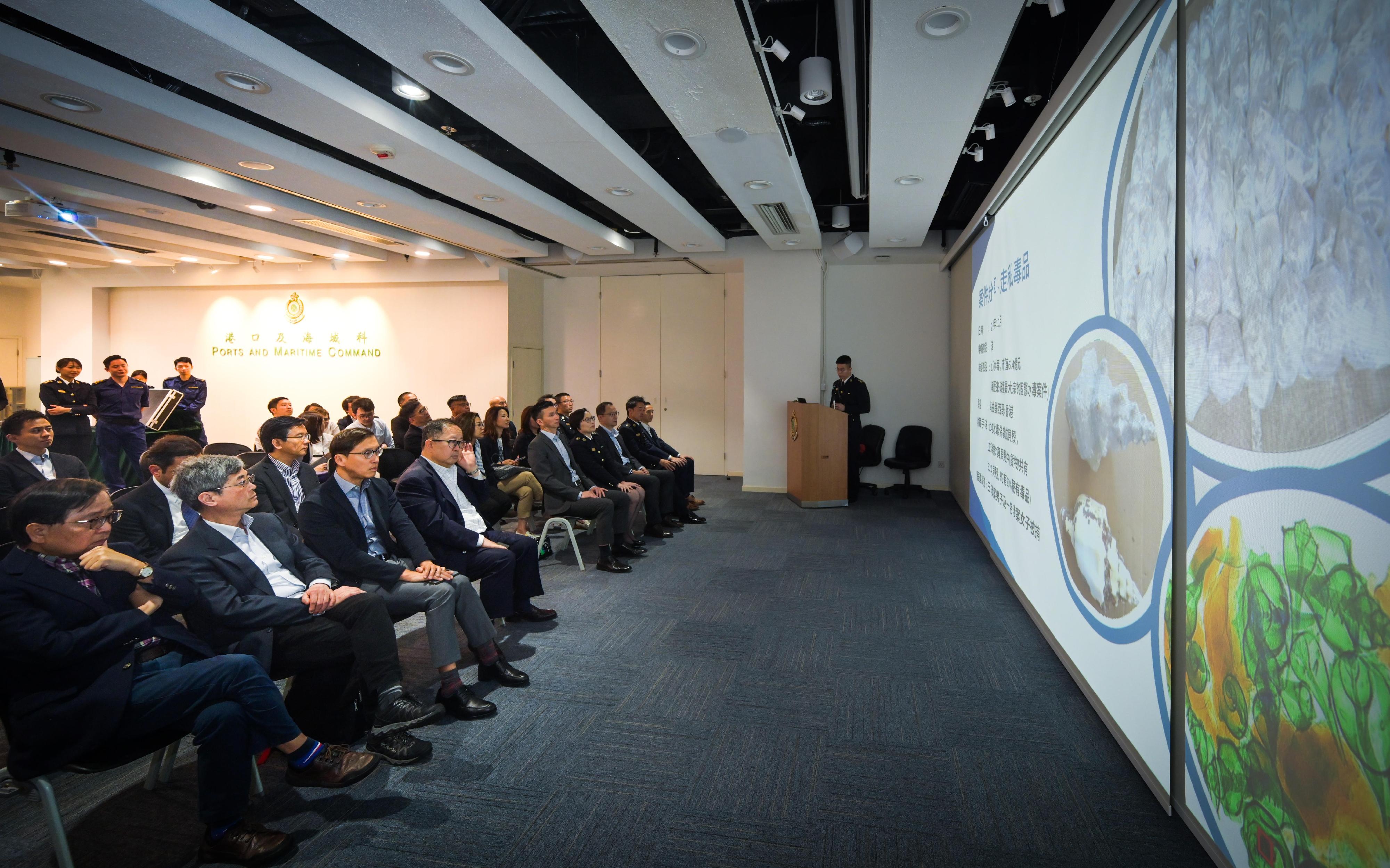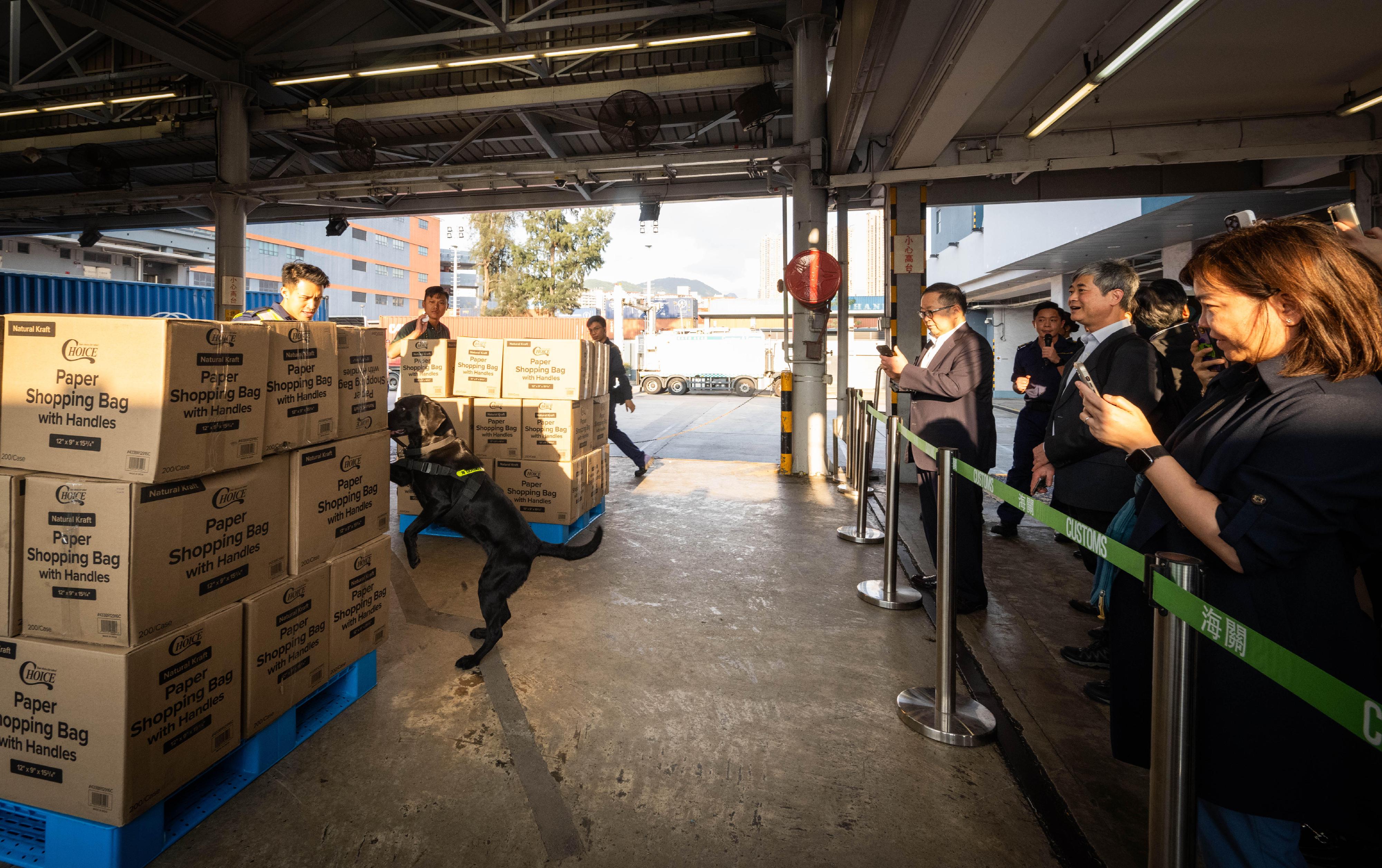HKETO holds spring reception in Tokyo to celebrate Year of Dragon (with photos)
​Some 450 guests attended a spring reception in Tokyo, Japan, today (February 21) organised by the Hong Kong Economic and Trade Office (Tokyo) to celebrate the Year of the Dragon.
Speaking to guests from various sectors including Japanese political and business circles, academia, media and community groups, the Principal Hong Kong Economic and Trade Representative (Tokyo), Miss Winsome Au, said that Hong Kong and Japan have developed strong bonds and connections on many fronts.
She noted that Hong Kong remained the second-largest export market for Japanese agricultural, forestry and fishery products in 2023, and was the fourth largest inbound tourist source market for Japan, reaching more than 2.1 million tourists for the year.
"Our connectivity has been resuming and improving, with passenger flights operated by four Hong Kong and three Japanese carriers, linking Hong Kong to 12 Japanese airports. This enhanced connectivity opens doors not just for business, but for leisure and cultural exchanges," she added.
On the business front, she said that there were over 9 000 companies in Hong Kong with parent companies outside of the city in 2023, marking a recovery to the pre-pandemic levels.
"Japanese companies continued to be the largest overseas group in Hong Kong with a slight increase in number to over 1 400, accounting for 15.5 per cent of the total," she said.
She also updated the guests on the latest developments of Hong Kong, and also shared with them the Hong Kong Special Administrative Region Government's initiatives to embrace the city’s enormous opportunities ahead.
The spring reception was organised by the Hong Kong Economic and Trade Office (Tokyo), and supported by Invest Hong Kong, the Hong Kong Trade Development Council and the Hong Kong Tourism Board.
